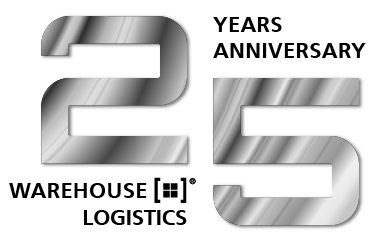News
The challenge
28.07.2023
Based on SAP's announcement that it will cease maintenance and further development of the SAP ERP system currently in use at the end of 2027, the Salzgitter Group began migrating its entire ERP infrastructure to SAP S/4HANA in 2018.
As part of this Group-wide transformation project, the merchandise management processes for the procurement of starting materials from the associated company Hüttenwerke Krupp Mannesmann (HKM) were to be standardized, optimized, and automated across all participating Group companies in a separate project. The biggest challenge during implementation was the high level of coordination required due to the existing IT and organizational structures.
The intermediate holding companies Salzgitter Mannesmann GmbH (SMG) and Salzgitter Klöckner-Werke GmbH (SKWG) act as central interfaces for the processes considered in this project, coordinating the procurement of starting materials from HKM on the one hand and distribution to the purchasing Group companies on the other. In addition, SKWG holds all major companies and shareholdings of the Salzgitter Group and bundles the Group's financial management. In the past, logistics and accounting processes were mapped using many different instances of SAP R/3 and other ERP systems and third-party applications.
The project
What should the logistical HKM starting material process look like in the future? Where are organizational changes possible and necessary? And how can they be implemented technically based on SAP S/4HANA? To create the target concept for harmonizing the logistical HKM starting material process, many questions had to be answered. After the start of the project in December 2020, the abat experts conducted numerous interviews with the process managers at SMG and SKWG to define the scope of the harmonization.
Based on the interviews, the project team formulated the specifications for the design of the target process in close cooperation with the group companies. The goal was to achieve a harmonized logistics process for HKM's starting materials. Specifically, the Group companies that manufacture flat steel, sheet steel or tubes from the starting material supplied by HKM (blanks in the form of slabs and round bars) are to transmit their starting material orders to SMG/SKWG via standardized IT interfaces.
EDI replaces e-mail and fax
At the same time, it was agreed that the delivery data would also be entered into the inventory management system via the standardized interfaces - including changes and cancellations of starting material orders. Previously, this had required manual intervention. To achieve these goals, the existing order templates had to be converted into a uniform format that considered the different data requirements of the companies. The necessary EDI interfaces were defined and implemented by abat within a few weeks. This laid the foundation for the automation of the data transfer.
Several special features in the sub-processes of the individual companies had to be coordinated and incorporated into the design of the target process.
Greater transparency
Whether in the construction or metalworking industry, steel buyers expect realistic delivery commitments, delivery capability and on-time delivery. Transparent inventories are a prerequisite for this. In the HKM starting materials process, this means clarity about where which starting materials are stored, in what quantities, and for which orders they are reserved. During process harmonization, special emphasis was placed on mapping the transfer of ownership, which is contractually linked to the loading of the starting materials. Only when the goods are on the wagon do they become the property of the ordering company. At the same time, it is possible to place goods received from overproduction in a buffer stock and assign them to a company. This gives the companies involved the freedom to make optimum use of their production capacities and to respond flexibly to changes in orders.
The same applies to S/4HANA: An ERP system is only as efficient as the organization it represents. The demarcation of the group companies involved in the logistics process in terms of information and data flows therefore played a major role in the success of the project. In the future, for example, all companies that receive starting materials will send their orders to the central functions department via EDI. From there, the orders are automatically forwarded to the producers of the starting materials and billed bilaterally to the companies authorized to place orders. This clear division of tasks gives each company the necessary freedom to concentrate on its core business and to optimize cooperation with partner companies.
